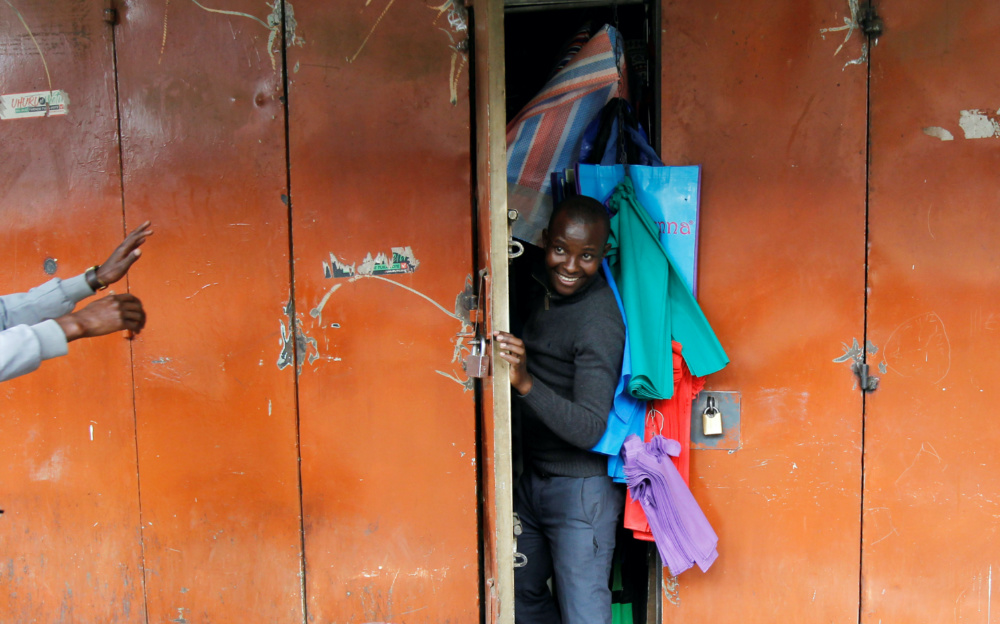Johannesburg, South Africa
Thomson Reuters Foundation
Businesses doing good in Africa can create jobs for some of those hardest hit by the new coronavirus pandemic – the youth, women and the poor, British researchers said on Wednesday.
Social enterprises, or businesses with a social purpose, employ up to 41 million people across Africa, said a study by the British Council, the UK’s cultural and education agency, looking at their potential for job creation post-COVID-19.
“As much as COVID-19 brings significant challenges, it also presents an opportunity to reboot economies on a firmer and fairer footing – a footing that ensures no one is left behind and decency of work for all,” it said.
“This is the auspicious time to champion a new type of entrepreneurship, which puts people and planet at its heart on equal terms with profit.”

A trader closes his shop before a curfew which was ordered by the Kenya’s President Uhuru Kenyatta to contain the spread of the coronavirus disease (COVID-19), in downtown Nairobi, Kenya, on 27th March. REUTERS/Njeri Mwangi
Coronavirus lockdown measures have affected close to 2.7 billion workers, more than 80 per cent of the world’s labour force, and more than 300 million jobs are likely to be lost worldwide, according to the International Labour Organisation.
The African Development Bank estimates between 24 and 30 million Africans will lose their jobs this year because of the pandemic, adding to 619 million already living in poverty.
“A social enterprise is job creation on steroids,” said Kerryn Krige, the ILO’s chief technical advisor in a webinar to launch the study, based on surveys with nearly 1,000 policy makers, universities and social enterprises in Africa.
“If we really want inclusivity in our systems, social enterprises can no longer be a fringe conversation, it needs to be a conversation at the forefront.”
Social enterprises are five times more likely to support vulnerable groups like women and people living in poverty than profit-first businesses, the study found, which could be key in helping those hardest hit by job losses during COVID-19.
It found that 41 per cent of social enterprises have a woman in charge compared to 27 per cent of profit-first businesses, and 44 per cent of social enterprises aim to improve a particular community, compared to 10 per cent of profit-first businesses.
Social enterprises often help young Africans to learn the skills they need to earn a living, the British Council said. In Ghana, about a third of schools are low-fee private schools running on a social enterprise model, the British Council found.
Many support young entrepreneurs, from AfriLabs’ tech-focused incubators to South Africa’s Clothing Bank, which trains women to become self-employed traders and FraiSen, which creates strawberry-farming jobs for young people in Senegal, it said.
“Creating jobs is saving lives,” said Kibret Tuffa, an Ethiopian entrepreneur who sold his house to kickstart the first private ambulance service in his country.
“We have to be as innovative as possible and see every challenge as an opportunity,” Tuffa said in the webinar.





